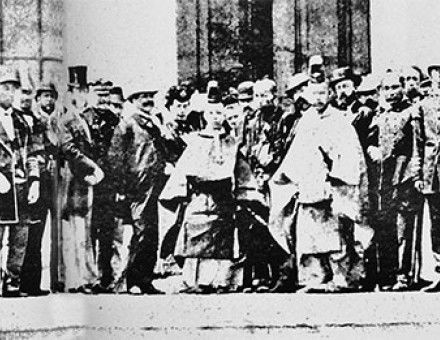The Making of Modern Japan
In the 1860s a group of the younger Samurai launched the Meiji revolution in the Emperor's name. This event, writes Henry McAleavy, helped convert Japan into a modern country, with Western fashions and techniques imposed upon the national habits of centuries.




